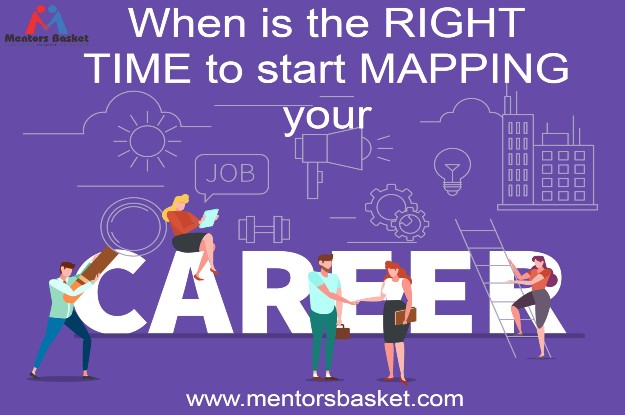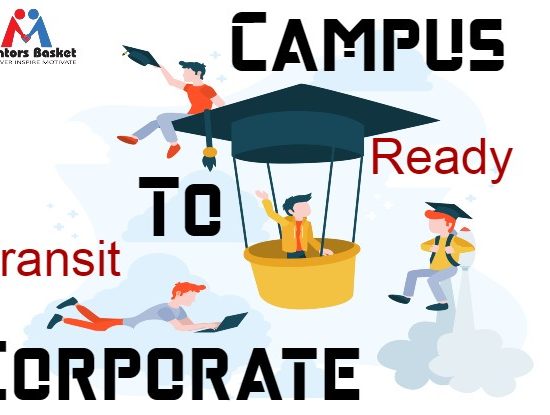
Choose Early
CHOOSE EARLY – CHOOSE RIGHT

As the employment environment changes continuously, it is wise to view the career as an evolutionary process. Students might not know exactly how they will use their education until they begin professional work. Careers guidance is not new to schools. It plays a significant role in helping students to develop the knowledge and skills needed for making wise choices, manage transitions in learning and move into their workplace.
Career guidance is a process; Students need the career planning assistance. The education in classroom or learning setting is a natural environment for individuals who wish to seek and receive help with career planning. Teachers can help in providing career planning assistance and suggest activities that can be used to support career planning. Even though students do not know which direction their careers will eventually take, they can help themselves by studying the possibilities. The Teachers can help the student stay aware of evolving career conditions and opportunities.
Career Guidance has specific phases or stages involving a number of career decisions which can occur over a period of time .Students can plan and influence their own careers. However, self-concept as well as the extent to which an individual feels responsible for his or her own future strongly influences the career guidance process. Career guidance should no longer be regarded as merely offering a remedial, advisory service on careers before graduation, but as a broader concept that refers to ‘a totality of experiences by which students acquire knowledge and attitudes about self and work, as well as the skills to plan and prepare for a career.
The emphasis of career guidance should be placed on empowering students to make informed and responsible choices for themselves. They should not simply be passive receivers. Therefore, the guidance should be an enabler when they are confronted with the need to make critical career choices. Teachers should encourage students to make their career decisions in accordance with their interests, abilities and personal orientations, apart from examining external factors such as career prospects, subject choices available, constraints and opportunities. As long as students are interested and engaged in their work, they shouldn’t be pressured. Goals must evolve at a natural pace. Remind students that they will almost certainly have multiple positions and perhaps even multiple careers, which is the strongest reason to aim for flexibility in qualification and experience.
Careers guidance should start early at secondary levels and should progressively develop students’ understanding of themselves in the context of whole-person development. The Teachers can play a big role by Inviting guest speakers and past students of different backgrounds to share their experiences and discuss with students their career and learning goals. Provide opportunities for students to visit or communicate with organisations and associations outside school to obtain the information and experience they need. Develop a comprehensive career guidance programme jointly with a career guidance centre. Gather up-to-date information on further studies and careers for the reference of students and parents. Teachers may also serve as “networkers,” providing links between students and Counselling services in both the institution and the community
Since teachers have ongoing contact with their students, they can play a key role in helping students access and use career planning information .Teachers can provide much of the attitudinal support and knowledge from which more motivated and informed career development may flow. Through classroom interactions, teachers are frequently able to identify individuals who need further career services. They should be knowledgeable about the variety of career services and resources available for their adult students and be able to refer them to the appropriate sources. Help students to acquire and apply appropriate vocabulary. Support attitudes of personal mastery or competence among students. Reinforce the importance of formulating positive attitudes toward work and acquiring information about a variety of occupations. Discuss concepts related to life in organizations. Assist individuals in identifying a wide range of occupations to which their vocational instruction is applicable. Encourage employers to provide information that will expand awareness of career opportunities. Provide a list of local resources offering career and educational guidance services. Giving an overview of job seeking skills including those involving resumes and cover letters, interviewing techniques, and ways to seek employment. Teachers should encourage students to visit workplaces, to arrange to “shadow” people on the job, and to find off-campus internships and summer placements.
One challenge for many teachers is to stay current on employment trends in their field. They can monitor major trends with a small investment of time by visiting some of the on line sites and can work with a local career guidance centre. Some career guidance activities involve counselling and should be provided by a trained professional counsellor. Like teaching, counselling is a special skill that requires training and supervised experience. Although many career development activities should be carried out in conjunction with a counsellor, teachers may also appropriately engage in activities that support or enhance career planning.
Careers guidance is for all students, irrespective of their abilities and orientations. There may be a misconception that students with good academic results (or potential) do not need careers education and guidance. In fact, early preparation and strategic planning make a great difference for everyone in terms of achievement, career choices and future success. Life-long learning is at the heart of careers guidance. Students should understand that there are usually no ‘Right’ or ‘Wrong’ choices in careers. In this rapidly changing society, a person may be involved in a career of many and diverse jobs and the key for life success will depend on both a life-long commitment to learning and the capability to plan and cope with transition and change.
Manu Anand
Director Alpha Mindz, Goa
Email: manu@alphamindz.com
Post a Comment
You must be logged in to post a comment.




